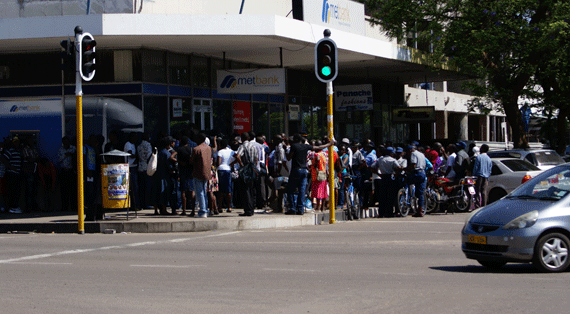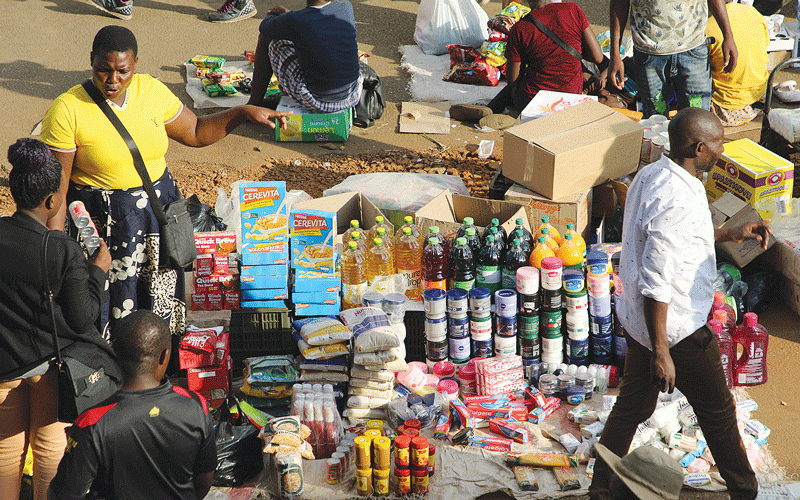
THE CHAOS that gripped Allied Bank and Metropolitan Bank yesterday was a symptom of a serious problem bedevilling the country’s financial sector.
It is very tragic that the government is not showing any signs of containing the crisis which has the hallmark of the 2007 mayhem that saw people spending endless hours queueing for cash at banks in vain.
Zimbabweans are finding it harder and harder to obtain cash from their banks and the situation appears to be worsening as the country draws closer to the Christmas and New Year holidays.
That Zimbabwe is facing a serious liquidity crunch is no longer news, but the question is what are responsible authorities doing to address the problem?
The silence of the government and monetary authorities amid the chaos would only serve to worsen the problem as there would be a run-in on deposits as people begin to lose confidence in the banking sector.
It is common knowledge that the financial services sector is sensitive and when banks fail to pay depositors their money on demand, everyone becomes worried about the safety of their money held by banks.
The liquidity crunch itself is an indication of a sick economy as many companies are failing to service loans and investment has virtually dried up.
Finance minister Patrick Chinamasa is expected to present the 2014 national budget on Thursday and these are some of the issues he needs to speak to very eloquently.
- Chamisa under fire over US$120K donation
- Mavhunga puts DeMbare into Chibuku quarterfinals
- Pension funds bet on Cabora Bassa oilfields
- Councils defy govt fire tender directive
Keep Reading
The Reserve Bank of Zimbabwe (RBZ) whose role in the economy was severely weakened following the decision to dump the inflation-ravaged Zimbabwe dollar in 2009, has to be revatallised as a matter of urgency.
RBZ has to be capacitated to be able to intervene when issues of money supply arise such as is the case now because depositors can only have confidence in the financial sector if there is support from the central bank.
There have been persistent reports that more than $2 billion is circulating outside the formal banking sector yet the government and the RBZ have never attempted to find out innovative ways of bringing this cash to the mainstream economy.
The business-as-usual approach to the multifaceted problems confronting the economy would take us back to the dark days that preceded the formation of the inclusive government in 2009.










